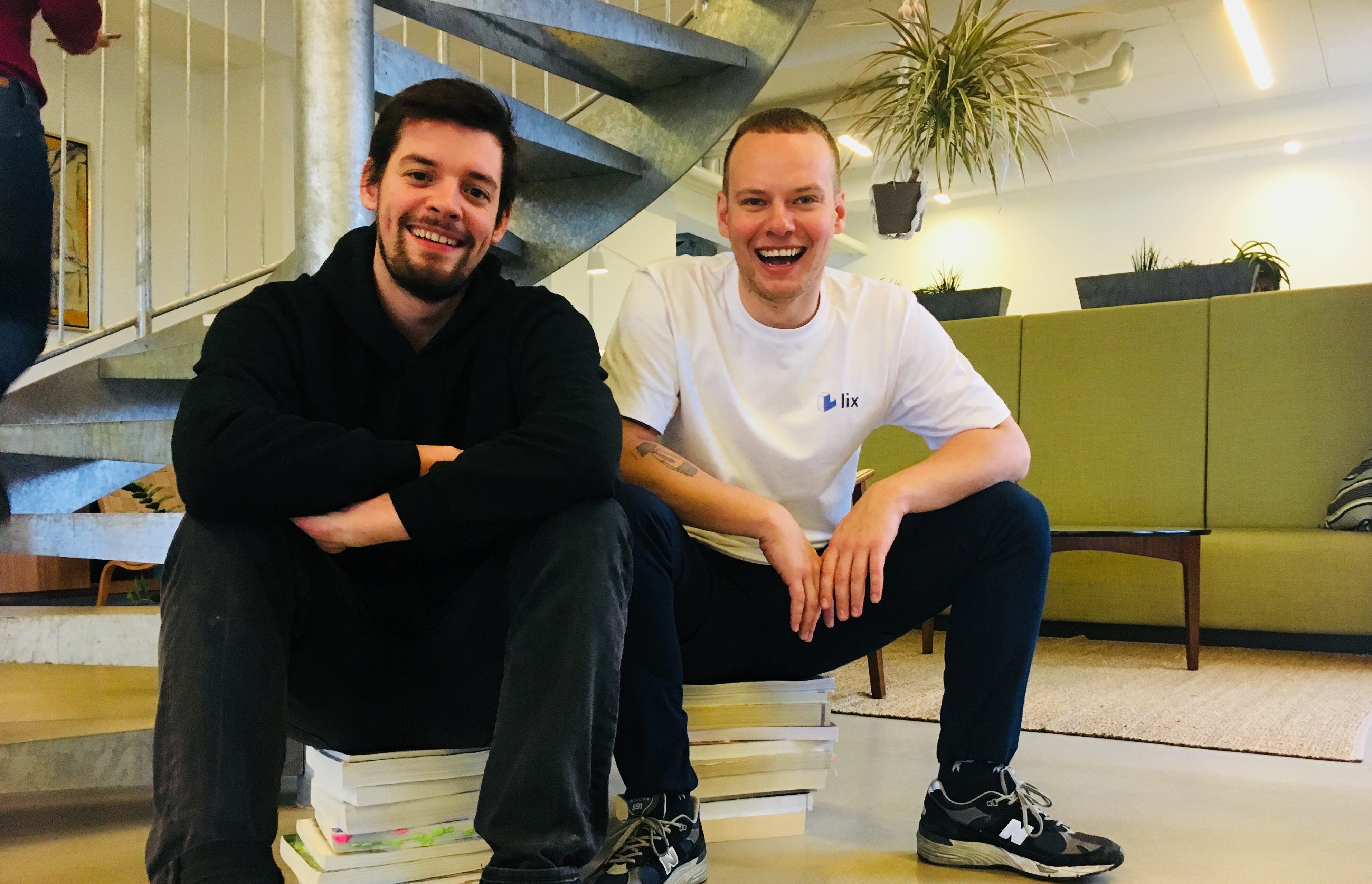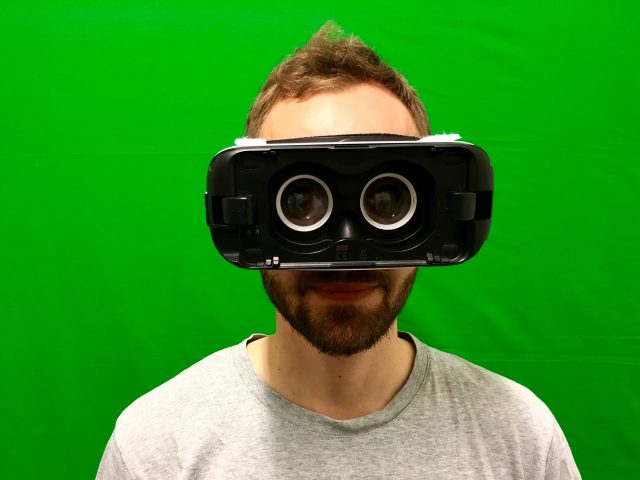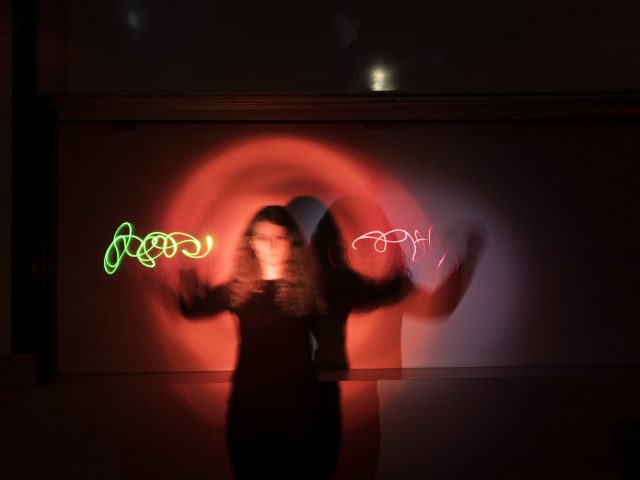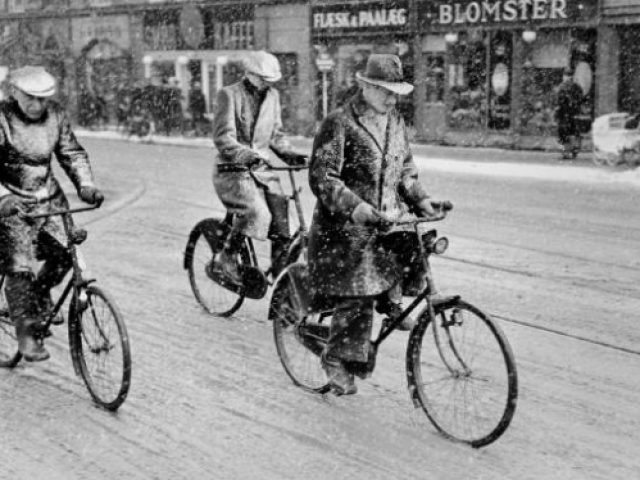Are printed textbooks facing the beginning of the end?

Martin Collignon (left) and Emil Sannino (right) are both CBS alums and part of the start-up Lix, which seeks to change how we use textbooks. (Photo: Anne M. Lykkegaard)
The start-up, Lix, has made what aspires to be the “Spotify for textbooks”, an online platform from which you can already access more than 70 percent of CBS’ curriculum. Lix wants to revolutionize the textbook with online features such as instant messaging and quizzes. However, the digitalization of textbooks might lead to us learning less, in the end, argues Jakob Ravn, Chief Consultant at CBS.
Old industries such as the hotel industry, the taxi business, and the media moguls have all experienced dramatic changes within the past 10 years. Airbnb, Uber, Spotify, and Netflix are some of the game changers to blame. Next in line for a makeover are the good old, dusty textbooks.
Lix Technologies, a three-year-old start-up with two CBS alumni on board, wants to revolutionize how we use textbooks today by expanding the potential of the textbooks digitally.
“The purpose of education is to give knowledge to students. Even if everything else in the way we live has changed in the last 200 years, we still get knowledge the same way as we used to do: printed textbooks,”says Martin Collignon, CBS alum and part of Lix’ growth team.
The idea for Lix was conceived by Camilla Hessellund back in 2013, when she studied at CBS’ counterpart in Aarhus, Aarhus School of Business and Social Sciences. She couldn’t believe that she had to carry all of her heavy textbooks, back and forth to school, and came up with the idea of an online platform for textbooks.
However, it wasn’t until 2015 that the idea became a successful business venture. Lix has been able to attract some of the most prestigious investors in Denmark and now counts 30 employees in Aarhus, Copenhagen, Norway, Russia, and Belgium.
This is how Lix works: you search for whatever book you need in their system, which contains more than 600,000 titles, and pay to access that book. Generally, online books tend to lack many features, but through Lix, you can highlight content, make notes, summary of notes, and search for specific themes or topics in all of your purchased books. For now.
We can’t stop the development, this is coming whether we like it or not
Jakob Ravn, Chief Consultant CBS
Martin Collignon and Emil Sannino, also CBS alumni and part of the growth team, explain that they want to further develop Lix so that peers can have conversations while looking at the same book, create quizzes, get suggestions for related material, and even add to the existing material by adding relevant videos or talks.
“Some will feel like the ground is burning, as they try so hard to keep an out of fashion concept alive. Education is an ancient discipline, but we shouldn’t continue nursing these big Harry Potter-ish libraries when times are changing and people’s demands are different. Especially the younger generation. From this year onwards, you’ll have students born in the year 2000 entering universities,” says Emil Sannino, who holds a bachelor degree in International Business from CBS and left his job from Google to join Lix back in November.

Jakob Ravn, Chief Consultant at Teaching and Learning at CBS, welcomes the development, and finds it really interesting, as the online textbooks create new opportunities for learning.
“The advantage of having digital platforms is that you get to plan and structure your learning process. You don’t have to do it by the book from page one to 360. With online texts, you can mix and match with videos and quizzes. There, the physical book has obvious limits,” he says.
However, in the end, it might take a little longer to understand what is in the books when we read them online.
“We can’t stop the development, this is coming whether we like it or not. But we’re going to lose precision and absorption, which are aspects that only physical books can offer,” he says, and believes that we will have libraries in the future – even if they will not necessarily be filled with books.
Why should I carry all these books?
However, “Spotify for textbooks”, as Emil Sannino describes Lix, seems like an idea which should have been up and running long ago. So, why hasn’t it?
“Many before us have tried to make it work, but failed. A part of it might have something to do with challenges in signing deals with the publishers. This has taken a long time for us, but now we have 600,000 titles in our system, and we cover more than 70 percent of CBS’ curriculum,” says Martin Collignon, who holds a bachelor degree in International Business from CBS and left his job at Uber to join Lix.
We shouldn’t continue nursing these big Harry Potter-ish libraries
Emil Sannino, Lix
Emil Sannino adds:
“There has to be a digital alternative to the book-shops, and it’s no easy task to change this industry. But digitalization is unavoidable.”
And it is not in fact the bookshops, which are the biggest competitor to Lix.
“Our biggest competitor isn’t Amazon, but more the fact that a lot of students are downloading the textbooks illegally. Only 40 percent of the students buy a new book,” and continues:
“But of course, it is possible to succeed. For example, Netflix and Spotify made it so much easier to consume content that downloading pirated films and music from Limewire and Napster felt like a hassle.”
The sound of distraction
It may seem like a great relief to have all of the books you need for your studies with you in your pocket or on your laptop, but reading online seem to have an adverse effect on our understanding and learning of the texts, explains Jakob Ravn.
“Research show that when one reads a text online, it is easier to get distracted, and this negatively affects the understanding thereof. However, when reading a physical textbook, you get a physical understanding of it. It allows for better concentration and more peace while reading,” he says.
A small ping is enough to distract you and reduce your understanding of what is being read
Jakob Ravn, Chief Consultant CBS
But what about the generation born after the year 2000? Aren’t they more apt at reading things on a screen, rather than in a book? Wouldn’t that generation be able to distance themselves from the distractions of social media? Not necessarily so, argues Jakob Ravn.
“There’s no doubt that the younger generation finds online books better to work with, and development is going in that direction. They think they can administer online distractions, but research shows the opposite. A small ping is enough to distract you and reduce your understanding of what is being read. Our challenge is to make space so that we can obtain the peace and quiet needed to concentrate,” he says.
Let’s say they read from a physical book, but have their phone right beside them. Isn’t the distraction then the same as on the computer?
“It’s different. When you read from a physical book, students have the opportunity to put away whatever is distracting them. But of course, you are right in that way, if the phone is right beside you while you are reading, it distracts you just the same way. However, the amount of possible distractions is bigger online,” he says.
Digitalization within our society is unavoidable. Will this then mean the end of libraries with endless rows of books? Probably.
“Even though the collection of books has been drastically reduced at CBS’ Library, a library is still needed. The leftover space has been made into new study facilities, and the tasks have changed from lending out physical books and putting books back on the shelves; to be much more about helping students find the right material online and determine which databases to choose from,” he says.
Online books – more features
Both Emil Sannino and Martin Collignon hopped on board the Lix train two months ago, and it’s going full speed ahead.
Soon, Lix will launch an app where students can access their books from their smartphone. And they are aiming to make it possible for students to subscribe to their entire curriculum. In this way, you don’t need to think about what books to get your hands on. You’ll have them all at your fingertips.
“Another idea could be to buy access to individual chapters from the textbooks,” says Martin Collignon and continues:
“Sometimes, teachers require students to read two chapters from a book, but the students don’t necessarily want to buy an entire book for the sake of just two chapters. But what if you could just by a chapter? The features you can make for online textbooks are limitless.”
However, Lix isn’t only a platform designed for students. Teachers and professors can get their hands on valuable data about their students reading behavior.
“Teachers might want to know whether the curriculum is being read or not. We have that data, and the teachers can use it to improve their lectures,” says Emil Sannino.




































































































































Comments